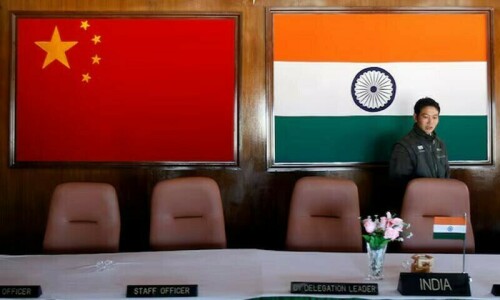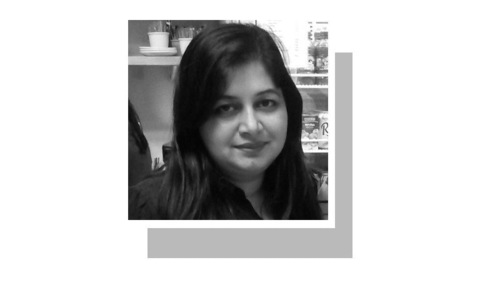Only a few years ago, he was studying at a madressah. Then one day, his family was informed that he had died in a suicide bomb blast. He was the suicide bomber, as confirmed by the propaganda video recorded prior to the attack. His younger brother says the family is still finding it hard to come to terms with the incident.
“He was funny. He used to make others laugh and was known in his friends circle as a champion of the game of snake on the mobile phone,” says his brother Amin. Their real names have been withheld upon their request.
So was it the madressah that turned a jolly young man into a suicide bomber? His family appears reluctant to answer this question. “We don’t really know,” says Amin’s father.
Some religious-political parties such as Jamaat-i-Islami and Jamiat Ulema-i-Islam have been trying to play down the role of religious seminaries in fostering extremism, with their representatives sometimes making outlandish claims of entirely denying any role of seminaries in the radicalisation of people.
Interior Minister Chaudhry Nisar Ali Khan says the overwhelming majority of madressahs have nothing to do with violence in the country. While that may be the case with the majority, there is little doubt about the dubious role of some madressahs in promoting militancy.
“It is a fact that some religious seminaries are acting as a supply line of suicide bombers. They may say that their ‘produce’ is just for Afghanistan but once out of the conveyor belt, one doesn’t always have control over where the bomber ends up,” says Tariq Habib, a journalist who has reported on militant groups in Pakistan and Afghanistan.
On top of that, Habib says, there is “inherent sectarianism in the curriculum. Madressahs can deny as much as they want, but if you go through their fatwas, it is clear that they have declared many Muslim sects as disbelievers. From there starts the legitimisation of their killing.”
Nearly seven decades after the creation of Pakistan, the leadership has for the first time, formulated a National Internal Security Policy (NISP) that seeks to “protect national interests of Pakistan by addressing critical security issues as well as concerns of the nation. It is based upon principles of mutual inclusiveness and integration of all national effort.”
According to Saleem Safi, a senior journalist and Islamist militancy expert, the task is far more difficult than perceived. “Real challenge for the NISP and the political leadership is to construct a national narrative. It is very difficult to bring a society, divided on multiple lines, under one narrative on terrorism and extremism.”
Tarring all madressas with the same brush may in fact deepen societal polarisation
Raza Rumi, Senior Fellow at the United States Institute of Peace, says the government has much to do when it comes to reforming madressahs.
“There are three issues of main importance: first the registration and regulation. They have to adhere to a regulatory framework. Second, the curricula that needs to be updated and modernised. No point in teaching Fatawa-i-Alamgiri or such other outdated texts. More importantly, sectarian hate that goes into teaching has to be curbed and discontinued. Third pertains to foreign students and teachers that become part of madressah networks without the necessary permission of the State,” says Rumi. He says that for madressah reform two imperatives need to be considered: first, the “extremist mindset flows out of the theological interpretations which are man-made and sectarian and they need regulation and debate. Second, terrorist activity is limited to only a few. And in the past the Pakistani state has used them as recruitment grounds for jihad abroad. These places and handlers are well-known and can be nabbed.”
However, scores of teachers and students at various madressahs have expressed frustration at what they view as being singled out and targeted for their beliefs.
The 21st amendment clearly discriminates between religious and secular elements of the society. Even on the streets, we are noticing the change in attitude of policemen who use derogatory language and try to humiliate every bearded person,” says Mufti Muhammad Zubair, Naib Muhtamim (Vice Principal) at Jamia Suffa in Karachi.
“The 21st amendment clearly discriminates between religious and secular elements of the society. Even on the streets, we are noticing the change in attitude of policemen who use derogatory language and try to humiliate every bearded person,” says Mufti Muhammad Zubair, Naib Muhtamim (Vice Principal) at Jamia Suffa in Karachi.
Bilal Hashim Siddiqui is a marketing graduate from Institute of Business Administration in Karachi. He is currently pursuing religious studies at Dar ul Uloom in Gulshan-i-Iqbal area of Karachi. He agrees with Rumi’s call for a debate but says “the secular elite do not have the moral and intellectual courage to have an honest debate” with Islamists.
“The media and the state have been suppressing any honest discussion on Islam. They want to regulate the debate in such a way that Islamists have to stay within the pre-defined, narrow framework set or rather imposed by the secularists. They want us to debate Islam by judging it according to the secular value-systems,” says Siddiqui.
“It seems the government has little understanding of the nature of the conflict and it’s simply playing on some impressive buzzwords like madressah reforms, deradicalisation, counter-terrorism, secularisation and many more. These labels may be sellable when it comes to securing international funding but does not really help in dealing with the challenges at hand. If anything, our society is getting increasingly polarised and that is not good,” says Sib Kaifee, an Islamabad-based security consultant who has acted as an advisor at some diplomatic missions as well.
A number of analysts seem to agree with some of the grievances coming out of madressahs.
“Government policies need a balance where every segment of society must be taken on board. Unfortunately, it seems that government policies are tilted towards the secular and liberal segment of society. I fear an Egypt-like polarisation if this trend continues. If the state fails to keep a balance then this type of polarisation may lead the society to violent confrontation,” says Abdullah Khan, director of the Conflict Monitoring Centre in Islamabad.
The government, however, appears confident that things are on the right track.
“A unity has been formed. You should not lose sight of this. The terrorists’ strength has finally been broken,” says Minister for State and Frontier Regions retired Lt. Gen Abdul Qadir Baloch.
But Rumi warns against any misadventures.
“It would be unwise for the state to isolate millions of students and their families. Therefore the reform has to be debated and those who advocate violence need to be identified and proceeded against under the law,” he says.
But Sib Kaifee sees a more fundamental challenge.
“Clearly we have a significant number of people who do not even recognise the law of the land and the system in place. Some of them vocally express their opposition while others are acting like sleeper cells waiting to explode. So instead of further polarising society, our mainstream media really needs to open up a debate on Islam and secularism. If we want to promote certain values then we need to convince the people about the superiority of our ideas,” he asserts.
Published in Dawn, Sunday Magazine, March 8th, 2015
On a mobile phone? Get the Dawn Mobile App: Apple Store | Google Play














































Dear visitor, the comments section is undergoing an overhaul and will return soon.